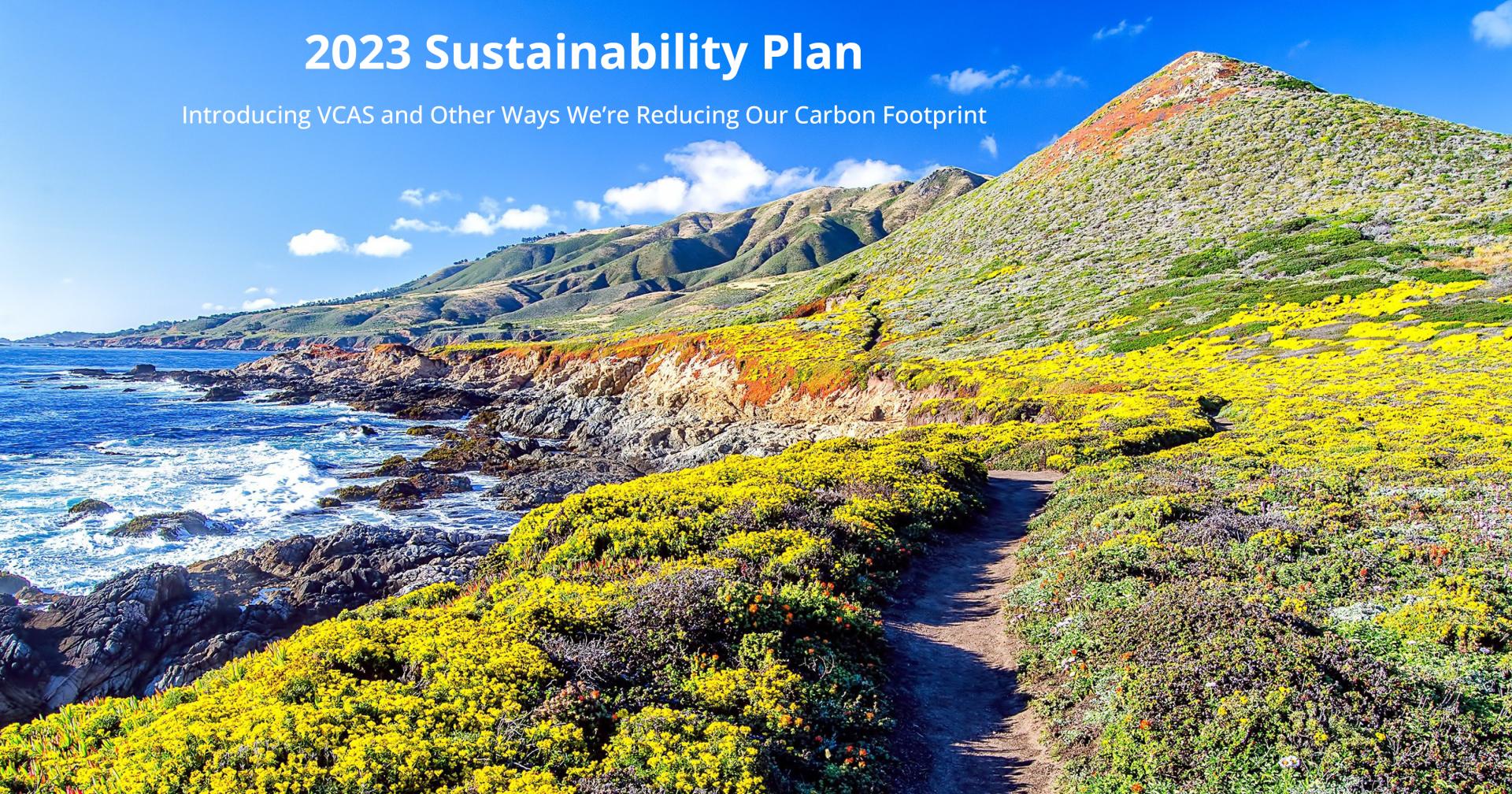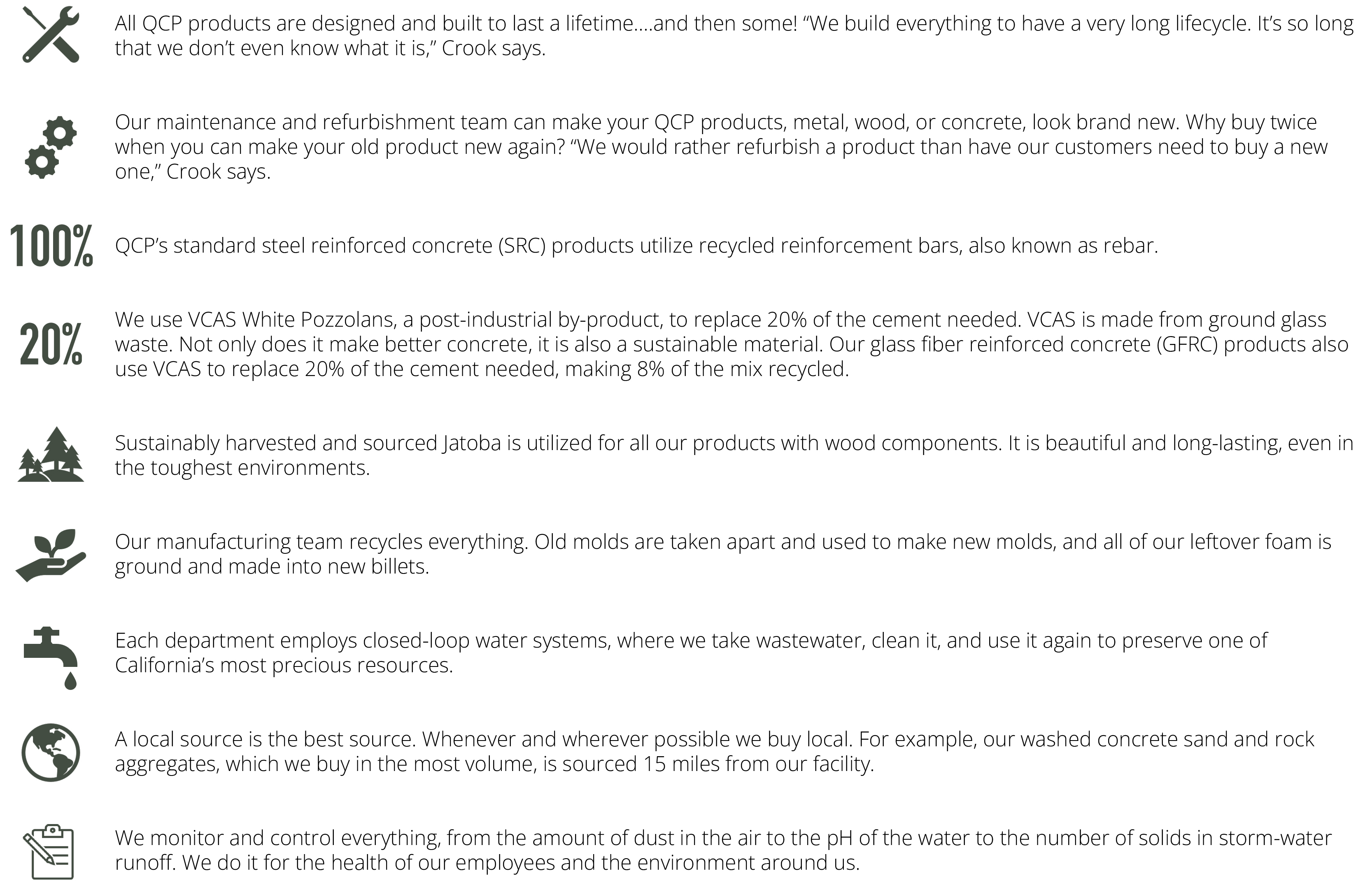
NORCO, CA, August 30 - Since QCP’s founding in 1976, we have been committed to finding sustainable alternatives to our process. In an effort to minimize our carbon footprint, QCP is reducing cement usage by 20 percent with VCAS, a pozzolan. This is another step toward our environmentally conscious future as a company with durable, sustainable products.
VCAS (vitrified calcium aluminosilicate) pozzolan is used as a cement substitute. VCAS requires less water and involves reclaiming glass fiber waste. Trademarked by Vitro Minerals, this product “replaces an equal amount of cement resulting in energy conservation and CO2 emission reductions from cement manufacturing.”
“VCAS pozzolan is made from post-industrial waste from the fiberglass industry,” says QCP CEO Rick Crook. “They grind it up so it’s super fine, and it makes the cement more workable when we’re pouring product. It also gives us a product with fewer air pockets and more strength. Adding VCAS to our mix was an easy choice. Better product and better for the environment.”
QCP’s interest in VCAS pozzolan started with a pilot project with Google back in 2021. Google expressed interest in using more sustainable materials for an upcoming project, and had come across QCP’s work.
“Their overall goal at Google was to reduce their carbon footprint across all construction, and they were trying to reduce the amount of Portland cement,” says Neil Elenzweig, QCP’s senior sales consultant. “That’s the carbon generator, the cement part of the concrete.”
Google ultimately decided against the project, but our research and work with the VCAS pozzolan served as the impetus for yet another sustainability initiative at QCP.
“It’s good for us, it’s good for the client, and it’s good for the environment,” Elenzweig says.”
These are QCP’s nine tenets of sustainability:

These tenets also come with a goal for the future of QCP. By 2025, we want to replace 30% of all cement used and eliminate 50% of our overall waste.
“Sustainability starts with the materials we use, and it goes through the process of using those materials to create our products,” says Matt Gilio-Tenan, QCP’s director of design and marketing.
Making the QCP production process more sustainable has been a priority for decades, but the team is constantly exploring new ways to innovate and improve upon our extensive product line.
“We’re trying to be a responsible manufacturer and give our customers products that will last for a long time,” Crook says.
